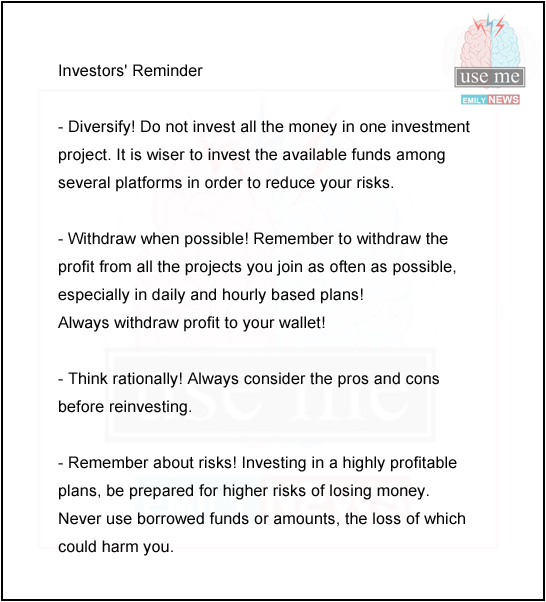in its recent post, ZionFinance platform (reviewed here) decided to raise the topic of global inflation as one of the most acute problems in many countries these days..
The platform tells its participants about basic things related to inflation, shows statistical graphs and finally adds a small promo part with explanations about the benefits of investing in it.
Click HERE to watch some videos.
Let’s check below:
Inflation. How to save money?
Who is afraid of inflation? Surely most people are. When we talk about inflation, we are talking about rising prices, which leads to buying fewer goods and services per unit of money. Rising inflation reduces purchasing power and affects total household spending.
Despite the shocking blow of the coronavirus pandemic to the economies of all countries, global GDP recovered quickly. But the payback was no less shocking – record inflation! All countries suffered damage of varying severity and no one escaped it. Many economists believe that the effects of the pandemic are not temporary. And if we consider that the vaccination did not bring the expected result, we can’t count on a quick recovery and high inflation will remain for at least another 2-3 years. This will not only result in higher prices for everything, but also in a change in investment strategies.
What’s going on
As of early fall 2021, inflation has hit most developed and developing countries. This was helped by the coronavirus pandemic and the related drastic severe quarantines imposed in most countries back in 2020. And then an equally rapid exit from them.
In the U.S., there are rising prices for everything. In June 2021, inflation jumped to an annual rate of 5.4 percent, the highest since August 2008.
On average, inflation in OECD countries (38 developed countries are members of the Organization for Economic Cooperation and Development) rose to 3.8% in May 2021 – a record since September 2008. Back in December 2020 it was 1.2%, and in May 2020 it was 0.7%.
In Europe, the situation is slightly better and the numbers look less frightening, but the point remains the same: for the first time since 2018, inflation in the eurozone exceeded 2% in May and in Britain it was 2.5%. For the first time since 2003, the European Central Bank approved a new strategy, raising the inflation target to 2% and allowing inflation to go beyond that limit.
Accident or trend
Is this rise in inflation a temporary and one-time phenomenon that is associated with a rapid restart of the economy (as Fed Chief Jerome Powell and most other central bank governors believe, for example), or is it the beginning of a new pro-inflationary trend?
Most U.S. bank economists surveyed by The Wall Street Journal in early July predicted that high inflation will continue in the U.S. until at least the end of 2023. The average annual inflation rate during those three years was 2.58 percent, the highest for the U.S. since 1993, the WSJ recalls.
The main reason for the long-term rise in inflation (some WSJ respondents are not afraid to call it a “generational shift”) economists point to a rare combination of factors: the trillion-dollar infusions of global central banks into the economy, the unprecedented level of savings accumulated by citizens during self-insulation, and the success of mass vaccinations in Western countries, opening them up to more money to spend every month.
Other reasons for the long-term rise in inflation can also be noted. The demographic shift in developed countries – the growing proportion of people of retirement age who spend more than they produce and save little. Or the transition of the digital economy and online commerce to a mature marketplace: Until now, marketplaces and digital services have struggled to gain market share by charging low prices and sacrificing profits.
What to do
Whether inflation is short-lived or lasts several years, the worst way to deal with it is to keep cash and savings at home. This will inevitably lead to financial losses. Therefore, to protect your savings from the effects of inflation, it is advisable to invest your capital in a way that makes it work and generate income.
Zion Finance has been improving the financial performance of the company and its clients year after year, despite the crisis and the coronavirus pandemic. You can view the company’s financial reports here (ссылка на финансовые отчеты). Investments for 12 months will bring you 280% of the profits. Your daily guaranteed return will be 0.5% per day.
One of the best ways to preserve and increase your savings in times of inflation is a long-term investment in Zion Finance. Now in its fourth year of perfect performance! Zion Finance – profitable, reliable, safe!
Check other news for today and Please stand by..
*********************************
If one of the paying programs on our Monitor appeals to you, please support EmilyNews by registering for it on our website. Thanks very very much!
EN web Support Chat | Hyips and Crypto questions – HyipChatEN
Telegram Chat for Crypto and Hyip reports: @HyipChatEN
*********************************
Be the first to get most important HYIP news everyday!
Simply Follow EN Facebook, EN Telegram, EN Twitter
or Subscribe to EN Feedburner and submit your email address!
If you like this article and want to support EN – please share it by using at least few of social media buttons below. Thanks and See you tomorrow!




